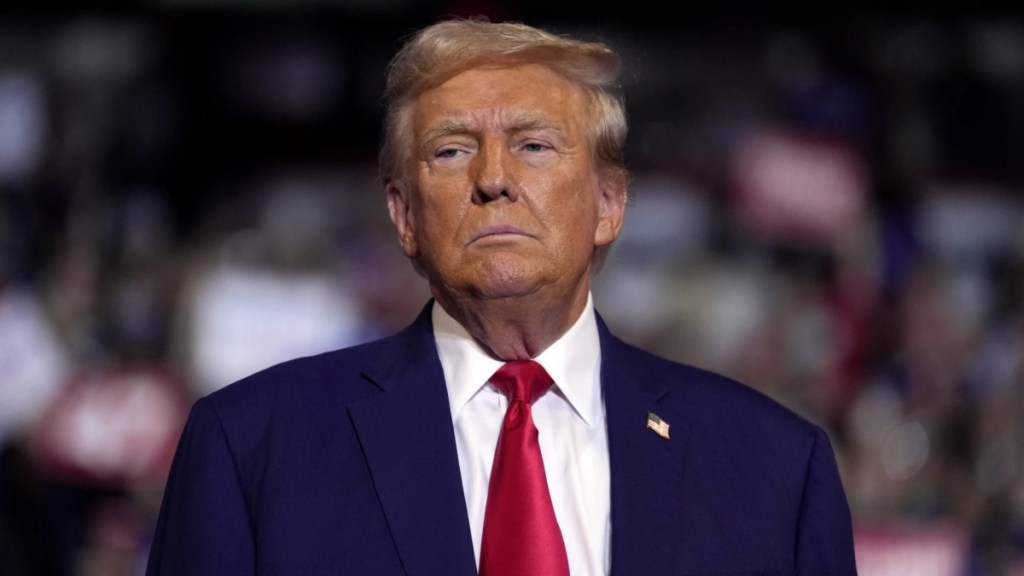The Trump administration has formally submitted a written filing to a New York federal court asserting that President Donald Trump utilised trade access as an incentive to “avert a full-scale war” between India and Pakistan. This marks the first time such a claim has been formally submitted in a court document, which usually comes from Trump’s usual social media or public speech pronouncements.
However, India maintains that trade was never mentioned in any official communications between Indian and US interlocutors during the four-day conflict earlier this month.
The filing, initially reported by the South China Morning Post, forms part of legal submissions by four Trump administration cabinet officials, according to media reports. These submissions oppose a lawsuit filed by small companies challenging the global 10% tariffs imposed on nearly all imports, along with additional tariffs targeting specific countries. The case is being heard by the US Court of International Trade (CIT), a federal court with jurisdiction over international trade and customs laws.
Court filing
In a declaration dated May 23, US Commerce Secretary Howard W. Lutnick defended the use of tariffs under the International Emergency Economic Powers Act (IEEPA), a law empowering the US President to impose economic restrictions during national emergencies. He argued that such measures “signals to foreign governments that certain conduct – whether economic predation, trade manipulation, or narcotics trafficking – will incur serious consequences.”
Lutnick further warned that a ruling in favor of the petitioners “would have ripple effects across every domain in which economic instruments are used for strategic effect.” To illustrate his point, Lutnick cited the recent India-Pakistan flare-up, claiming Trump’s offer of trade access was instrumental in halting the conflict.
“For example, India and Pakistan – two nuclear powers engaged in combat operations just 13 days ago – reached a tenuous ceasefire on May 10, 2025. This ceasefire was only achieved after President Trump interceded and offered both nations trading access with the United States to avert a full-scale war,” Lutnick stated in the submission to the three-judge bench. He added, “An adverse ruling that constrains presidential power in this case could lead India and Pakistan to question the validity of President Trump’s offer, threatening the security of an entire region and the lives of millions.”
Pahalgam attack, Operation Sindoor and the rest
The recent escalation in hostilities between India and Pakistan began on May 7, when India launched “Operation Sindoor,” striking nine sites linked to terror infrastructure in Pakistan and Pakistan-occupied Kashmir. This action was in response to a terrorist attack in Pahalgam on April 22 that killed 26 civilians, predominantly tourists. Pakistan retaliated, leading to a sharp increase in cross-border military actions, including drone incursions, air defence operations, and artillery exchanges.
On May 10, Trump was the first to announce and claim via social media that the US had brokered a ceasefire. India, however, has consistently avoided the term “ceasefire,” instead describing the de-escalation as a cessation of hostilities following a direct military-to-military phone call.
A day later, on May 11, Trump posted on Truth Social: “while not even discussed, I am going to increase trade, substantially, with both of these great Nations” – marking the first public instance where he linked trade to the recent India-Pakistan conflict.
The following day, May 12, Trump explicitly claimed that the threat of cutting off trade had compelled India and Pakistan to halt their fighting. These comments came just hours before Indian Prime Minister Narendra Modi’s first address to the nation since the start of Operation Sindoor. “I said, come on, we’re gonna do a lot of trade with you guys. Let’s stop it. Let’s stop it. If you stop it, we’ll do a trade. If you don’t stop it, we’re not gonna do any trade. People have never really used trade the way I used it, that I can tell you, and all of a sudden, they said, I think we’re gonna stop,” Trump stated at a White House event.
At a Ministry of External Affairs media briefing on May 13, spokesperson Randhir Jaiswal formally rebutted the claim: “From the time Operation Sindoor commenced on 7th May, till the understanding on cessation of firing and military action on 10th May, there were conversations between Indian and US leaders on the evolving military situation. The issue of trade did not come up in any of these discussions.”

